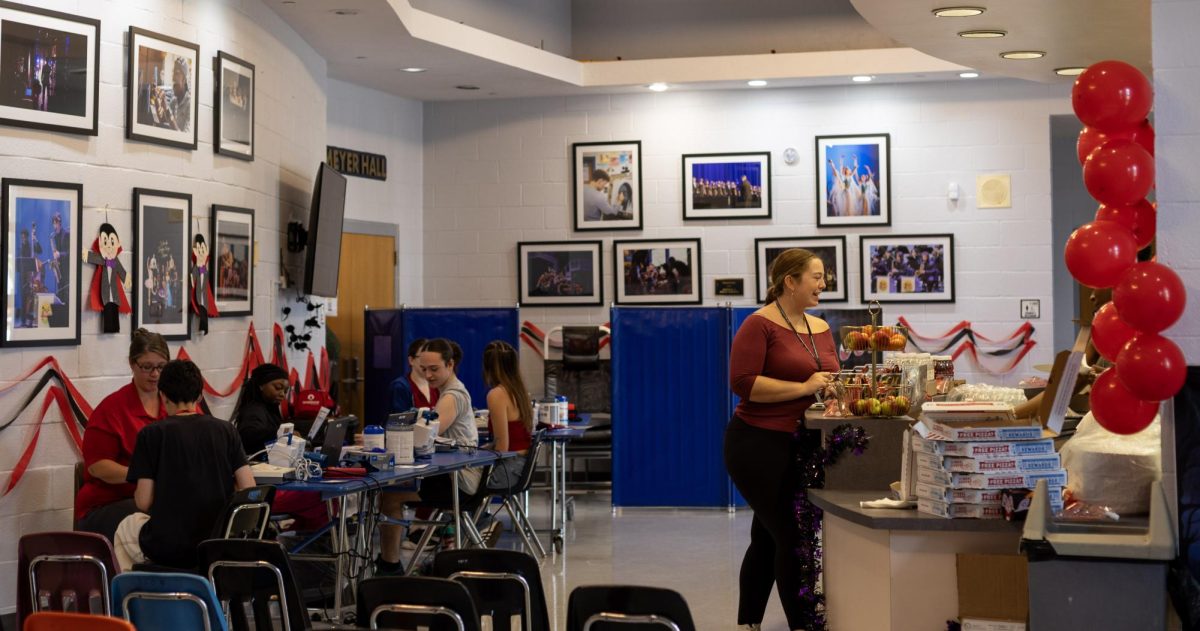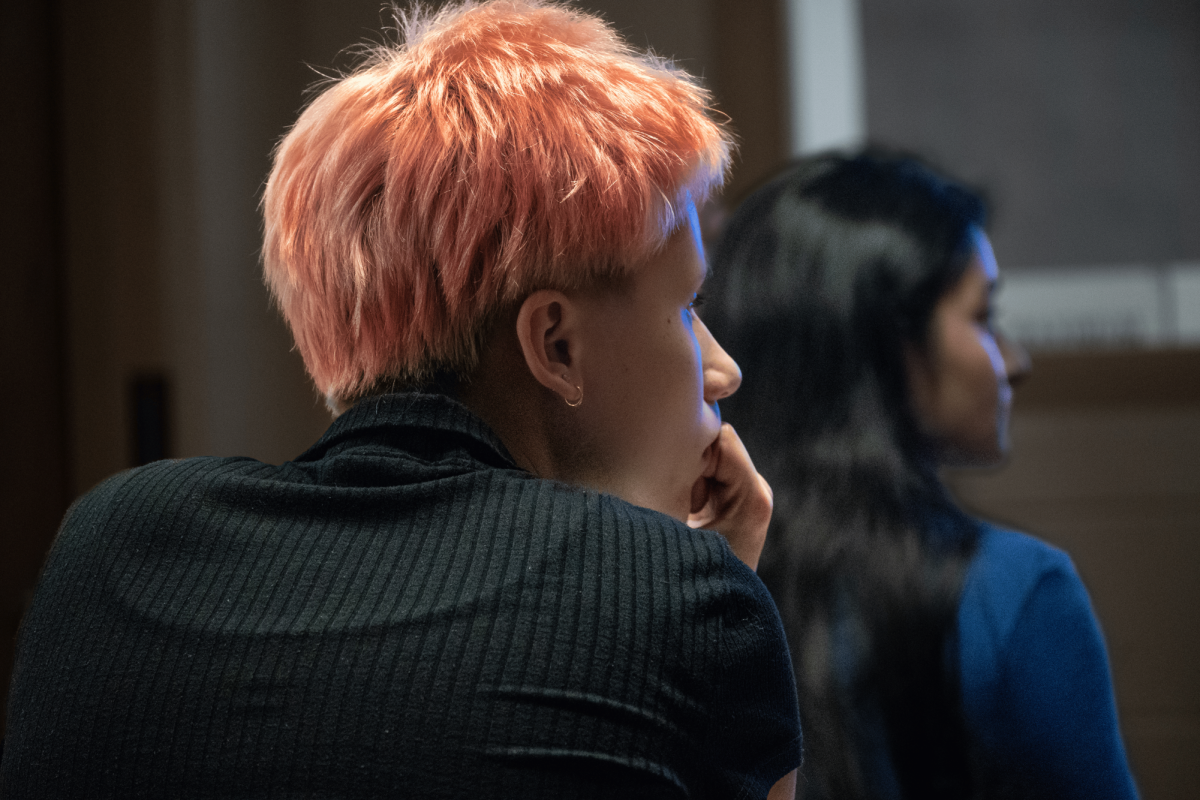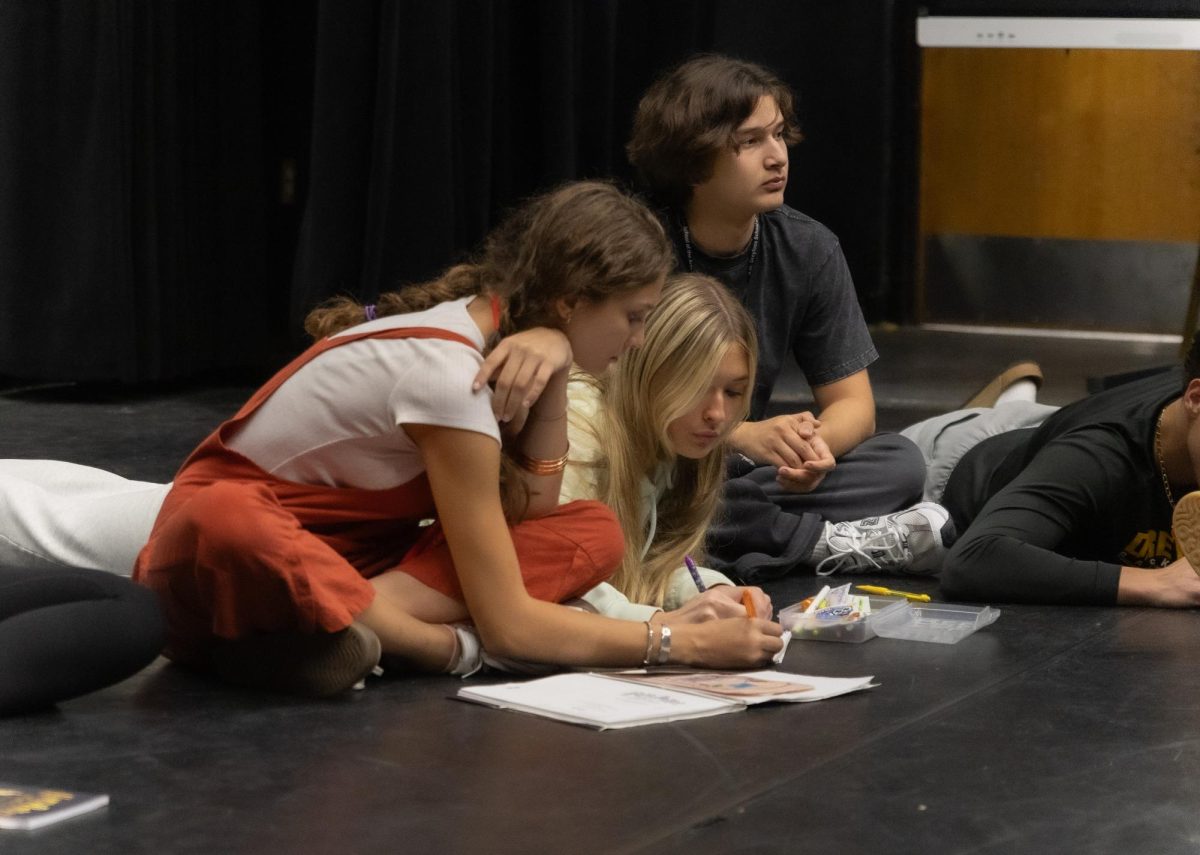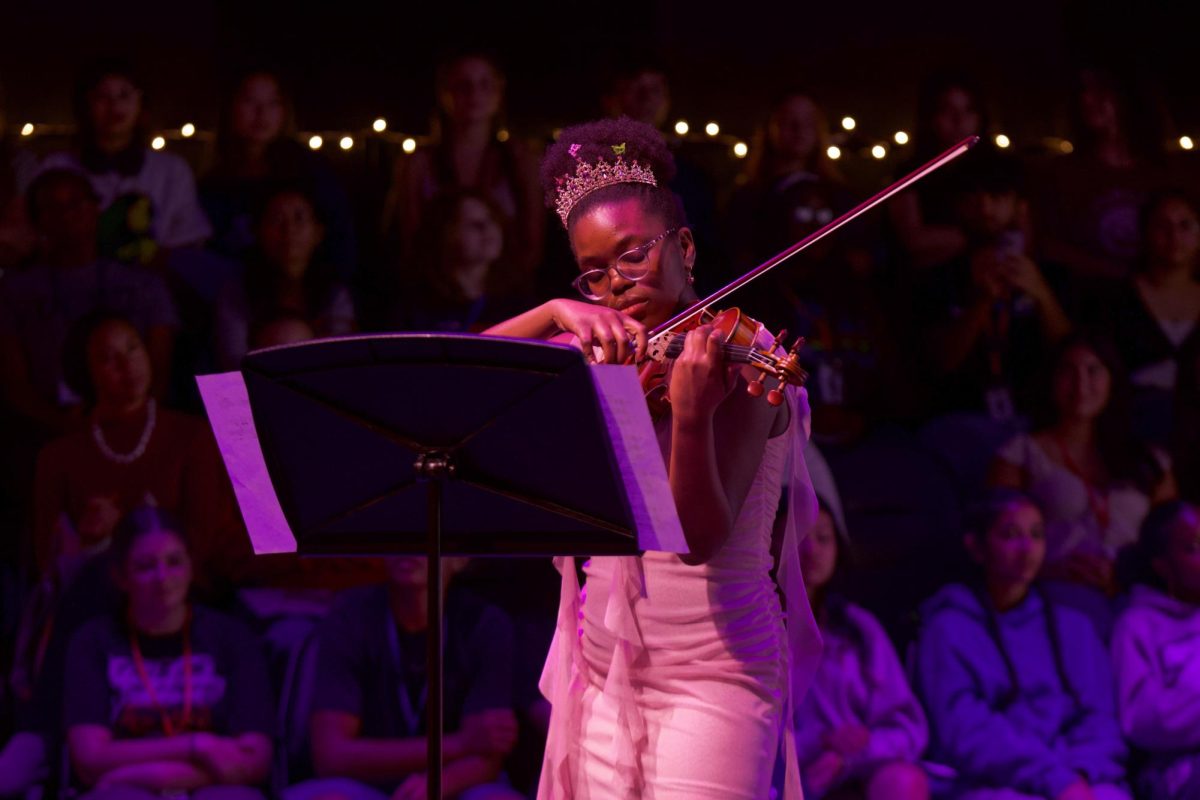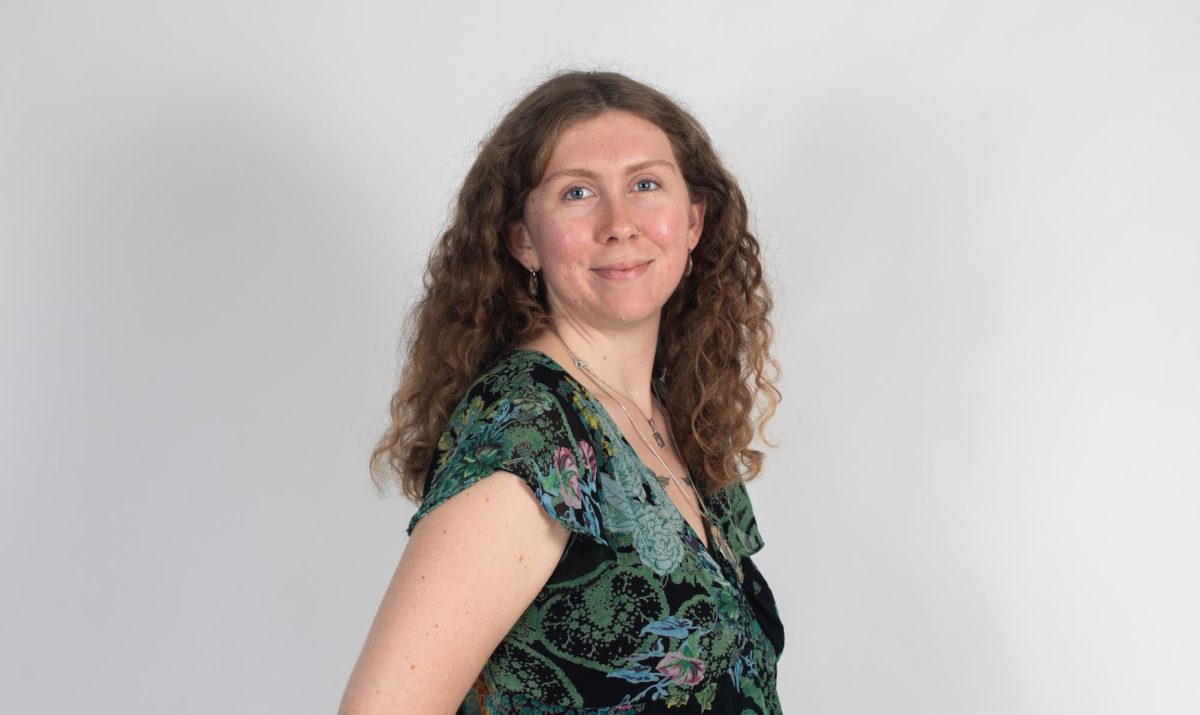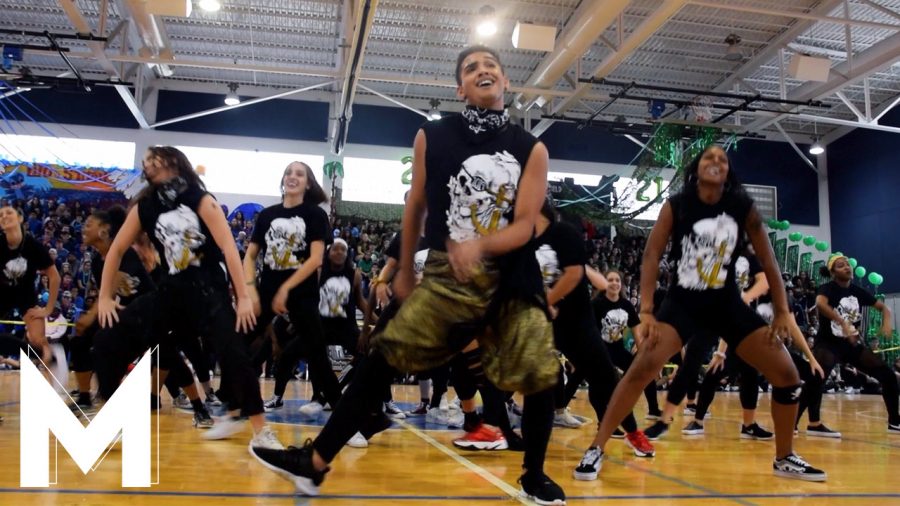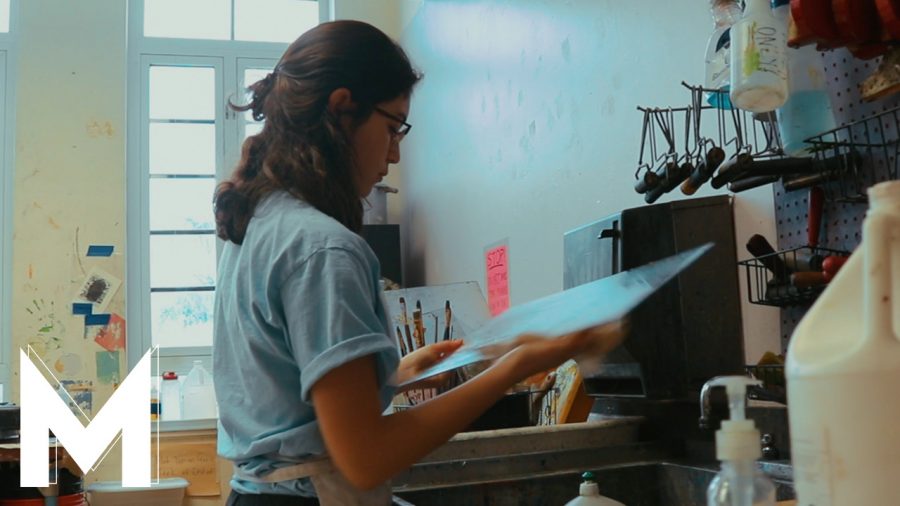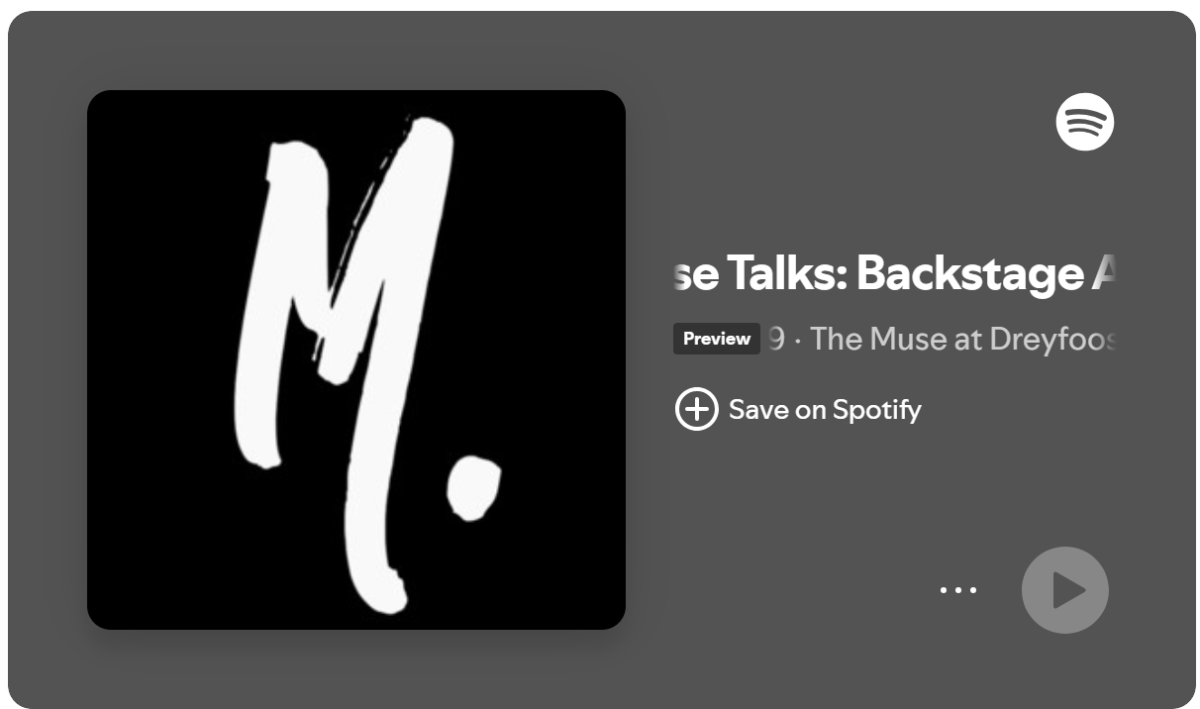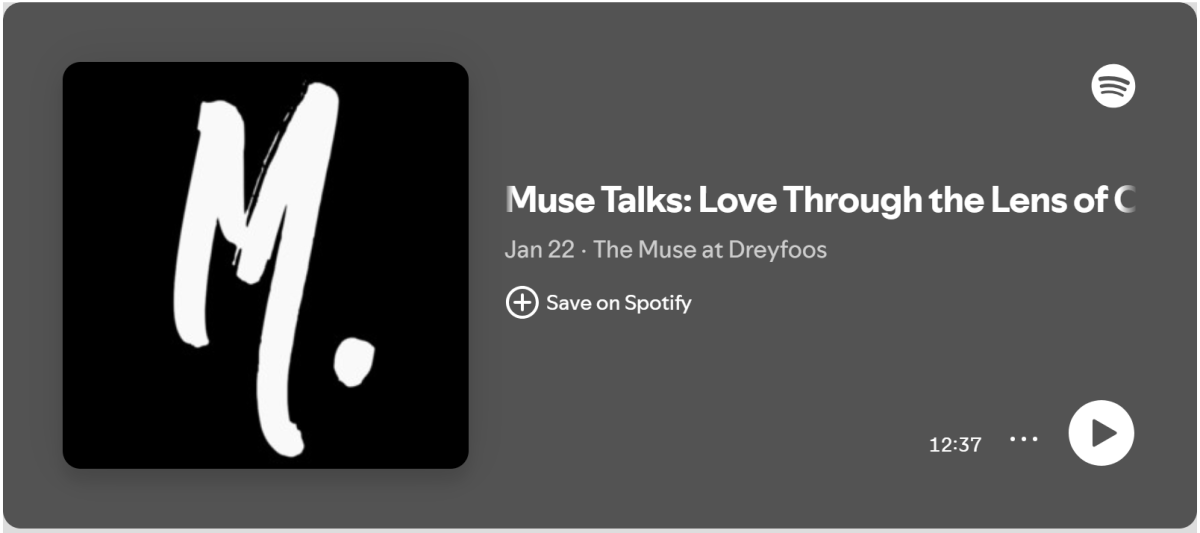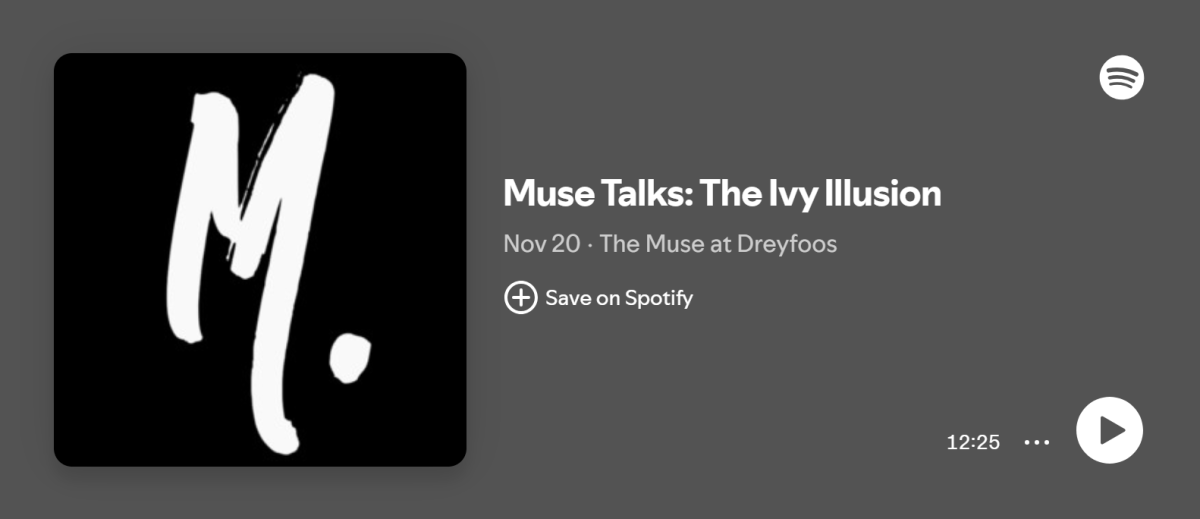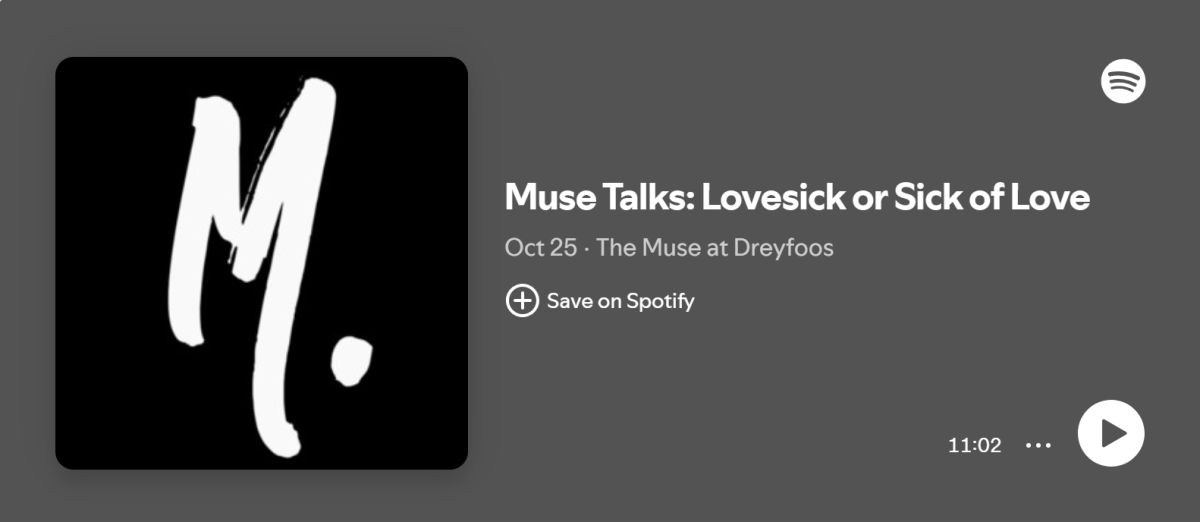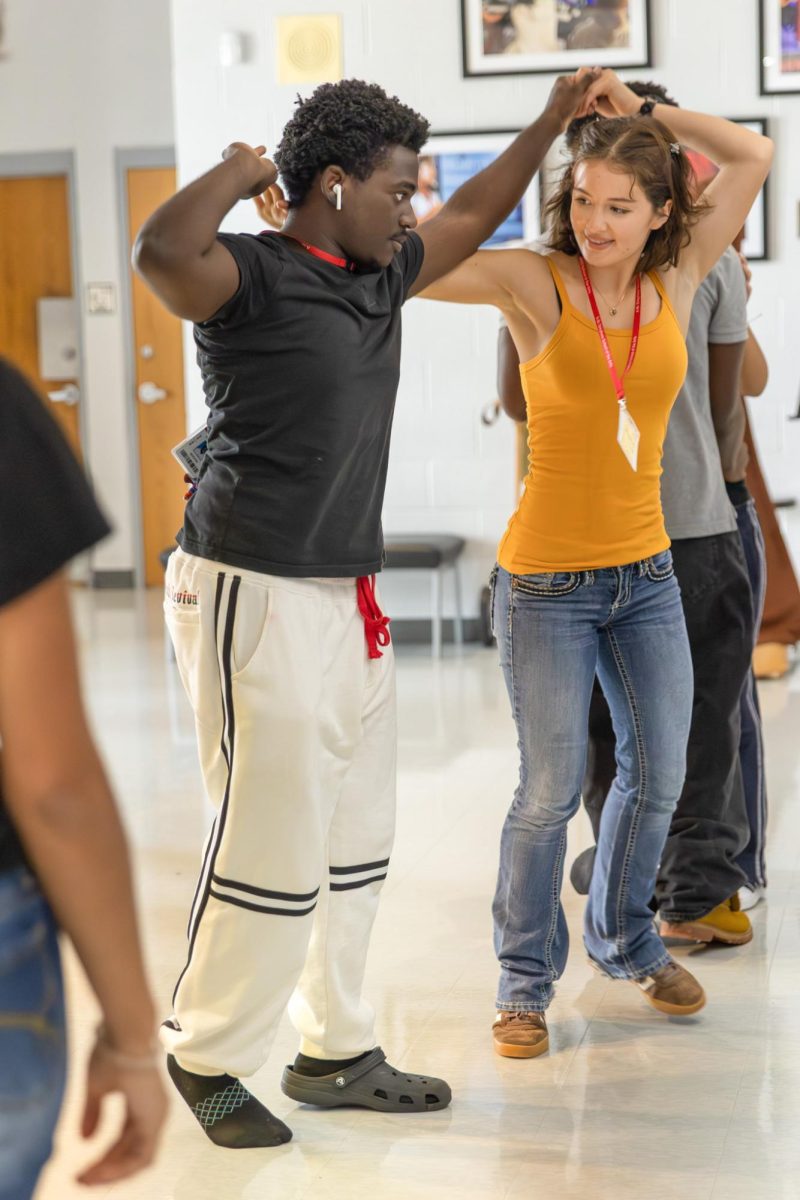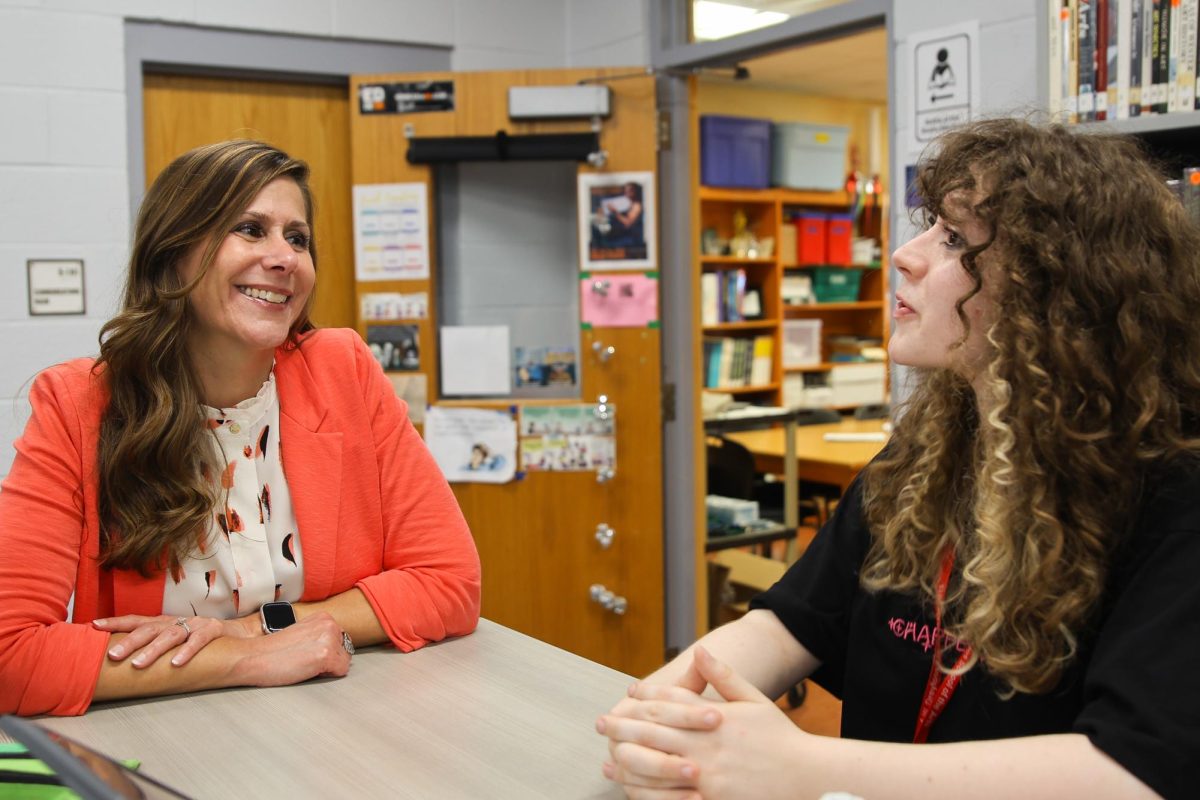Remembering the Holocaust
Students and staff contribute to remembering the Holocaust and preserving its history
photo provided by Amanda Shore
Theatre senior Amanda Shore (left) walks over the train tracks that marked the lives lost during the holocaust.
Over 70 years have passed since one of history’s most horrifying tragedies took place. Approximately 6 million Jews, 5 million Ukrainians, half a million Gypsies, tens of thousands of homosexuals and so many more innocent people were systematically persecuted and murdered during the Holocaust. Today, April 16, marks Holocaust Remembrance Day. As explained by the United States Holocaust Memorial Museum, today’s date corresponds with the 27th of Nisan on the Hebrew calendar, which, back in 1943 marked the beginning of the Warsaw Ghetto Uprising.
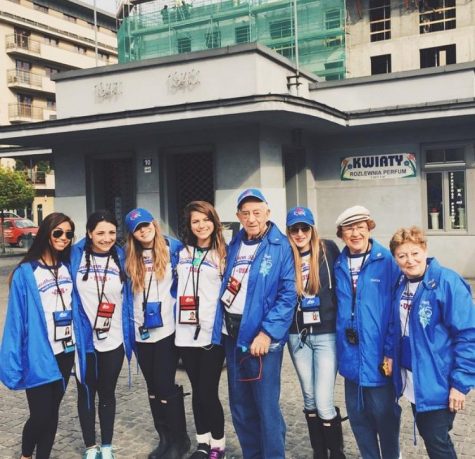
Theatre senior Amanda Shore (third from right) and visual senior Emily Gerstein (third from left) gather among other participants of The March of the Living and a Holocaust survivor (middle).
To remember the Holocaust, theatre junior Max Prissert, theatre senior Amanda Shore, visual senior Emily Gerstein and band senior Zoe Scheiber are currently participating in The March of the Living, an educational program that brings students from all over the world to Poland. There, they study the history of the Holocaust and examine the roots of the prejudice, intolerance and hate during this horrible time in history.
“What we’re doing is an international march from Auschwitz to Birkenau, replicating the death march [taken during the Holocaust],” Scheiber said. “On The March of the Living, we learn about our past, and are exposed to the evil that was imposed on our ancestors. We’re doing this to honor [the] survivors of the Holocaust, appreciate the resistance fighters, and continue our fight to make sure the Holocaust will never be forgotten and that it will never happen again.”
The March of the Living is a silent tribute to the approximate 750,000 prisoners forced on the death march, and all other Holocaust victims. It is designed to contrast with the death marches, which began towards the end of World War II, and continued virtually up until the end of the Third Reich.

Visual senior Emily Gerstein sits on train tracks during The March of the Living.
During The March of the Living, people are able to visit some of the concentration camps that killed millions during the Holocaust, such as Treblinka, Majdanek and Auschwitz. After the week in Poland, they spend a week touring Israel and celebrating Israeli Independence Day, which is on May 14.
In remembrance of the Holocaust, today, English teacher Geoffrey Johnston devoted the entirety of his AP Language and Composition classes to discussing the Holocaust, the preservation of Holocaust artifacts and why we need to remember what happened. His classes read and discussed The New York Times’ article that was published yesterday, titled “Preserving the Ghastly Inventory of Auschwitz.” The article focused on maintaining the site of the Auschwitz-Birkenau concentration camps, and how the Auschwitz-Birkenau Foundation maintains the Holocaust’s authenticity.
“I knew that today was Holocaust Remembrance Day, so I wanted to do something involving it with my [classes],” Mr. Johnston said. “My [classes] discussed the rationale and importance of preserving this history. Once we lose sensitivity in history, its value is diminished and lessened to just facts and figures. It’s important that we remember.”
Your donation will support the student journalists of Dreyfoos School of the Arts. Your contribution will allow us to purchase equipment and cover our annual website hosting costs.

